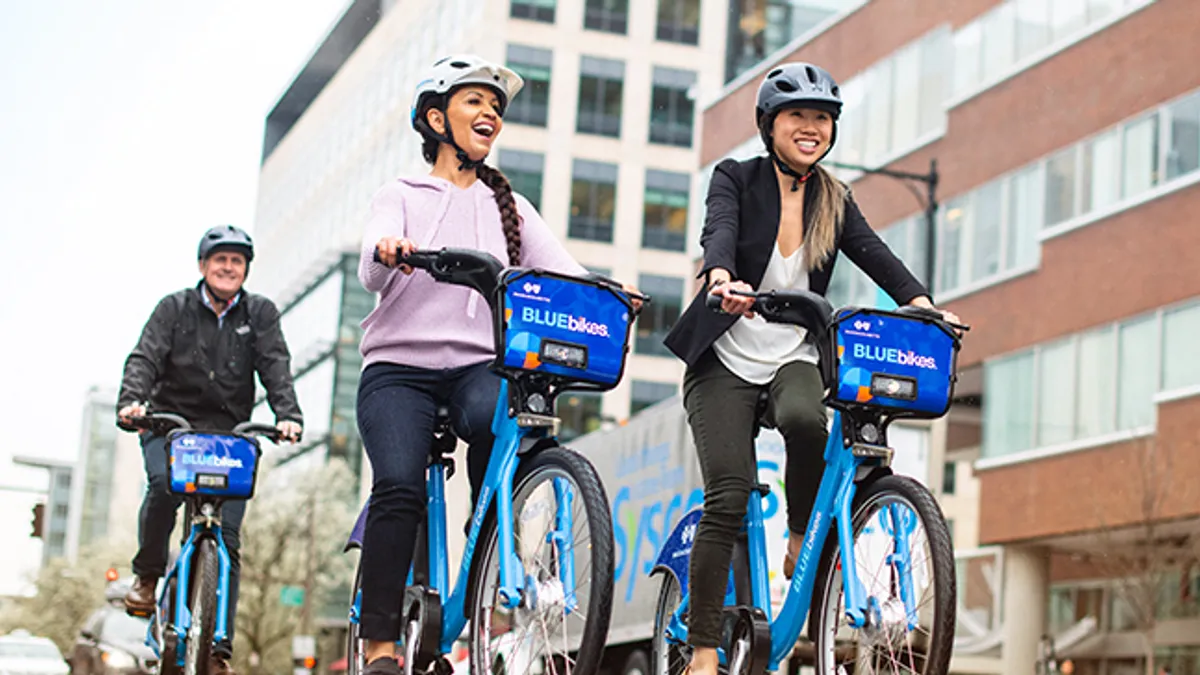Dive Brief:
- The National Association of City Transportation Officials (NACTO) and the International Municipal Lawyers Association (IMLA) released a best practices manual to help cities as they collect, store and use a bounty of new data from mobility companies.
- The guide offers four overarching principles: that mobility data is a public good and should be used to "ensure positive safety, equity and mobility outcomes;" that data should be protected as if it were personally identifiable information; that cities should be clear about when and why they are gathering data; and that data should be kept open and shared with public and private partners.
- The framework also offers guidance on privacy, since the groups say anonymized data can be matched with individual users if not properly managed and aggregated. Treating mobility data as personally identifiable information (PII) and keeping up on data management practices can help protect citizens.
Dive Insight:
The rapid changes in mobility over the past decade — from ride-hailing companies to micromobility options like scooters and e-bikes — have also meant reams of data sources. That can be turned into valuable information about how streets and sidewalks are used. Detroit has partnered with NACTO and scooter company Lime to learn about micromobility use, while Ford, Uber and Lyft joined with SharedStreets to offer data on curb space and parking demand.
Gathering data from multiple private companies, storing it safely and turning it into useful trend reports is a challenge, especially as new sources come online quickly. SAE International has stepped in with a new consortium to develop best practices and standards for storing and sharing data from shared micromobility services.
The NACTO and IMLA guide is another tool for cities, with an emphasis on keeping data safe. It recommends that individual trip records be kept on a secure database, and only be stored for a short window of time that allows cities to gather the proper data for aggregation. Those practices should also be communicated to private companies, the guide says. Sharing of data should only happen in aggregated form, which would protect individual users from being tracked by trips and routines, or by being matched to other data.










